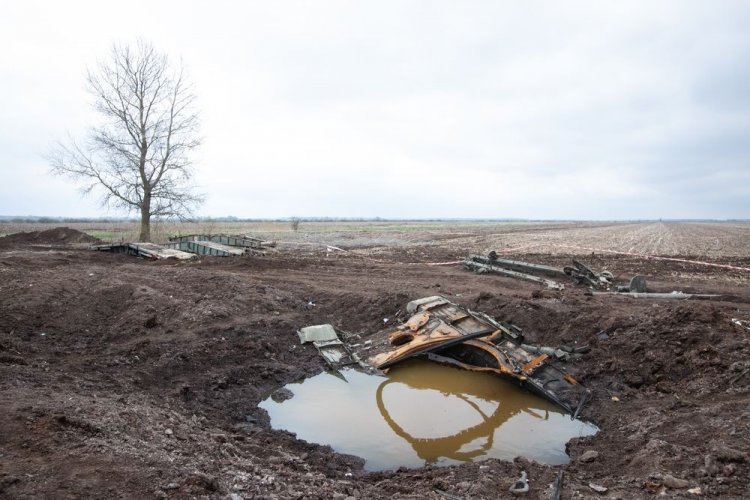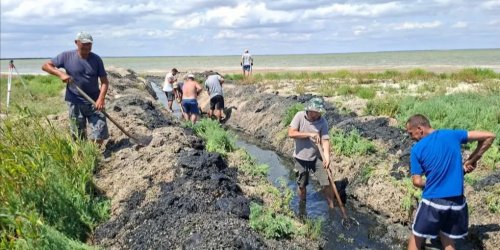Yevgen Fedorenko, the Deputy Minister of Environmental Protection and Natural Resources, said that during the 8 months of the full-scale invasion, russia caused more than €37 billion in damage to Ukraine's environment.
This happened during the Security Cooperation Forum of the OSCE participating States, where the issue of environmental security was officially raised for the first time, the Ministry of Environment reports on Facebook.
"The world must recognize that Russia is the biggest sponsor of terrorism in modern society. It is this country, with the assistance of Belarus, that uses nuclear, energy and raw material terror, causes significant damage to the environment not only of Ukraine, but also of the whole of Europe," he emphasized.
Fedorenko emphasized that, having suffered defeats on the battlefield, russian troops purposefully hit civilians and civilian infrastructure of Ukraine. On October 10, more than 80 rockets were fired over Ukraine. Mass attacks using Iranian kamikaze drones were repeated on October 11 and 17. As a result, more than 30 fires occurred.
The report noted that due to forest fires, the burning of petroleum products and the burning of industrial facilities, emissions into the atmosphere have already exceeded 67 million tons. However, polluted air and water have no borders and can harm other countries.
For example, missile strikes on the dam of the Karachuny Reservoir on the Ingulets River near Kryvyi Rih caused a temporary reddening of its waters. Contaminated water entered transboundary rivers, the Black and Azov seas.
Fedorenko also cited other examples to demonstrate the amount of damage caused to Ukrainian nature:
- Russian aggression turned the world's most fertile chernozems into a huge minefield. Almost a third of the territory of Ukraine – about 200 thousand km2 – will require demining;
- more than 2.4 million hectares of forests have already been cleared by the Armed Forces. They suffered significant damage, including fires and trenches. It will take tens of years to recover;
- 20% of nature conservation areas of Ukraine were affected by the war. Ramsar sites and the Emerald Network are at risk;
- Russia occupied 2,209 deposits of energy resources, metals and minerals. Together they are estimated at €12.7 trillion;
- Russia does not agree to the creation of a demilitarized zone around the Zaporizhzhya NPP and regularly bombards the surrounding area and infrastructure.
"We call on the international community to help bring the aggressor to justice for the sake of peace and security in the world. We thank those OSCE participating countries that help us resist this terror," Fedorenko emphasized.
Earlier, EcoPolitic wrote, that the Minister of Environmental Protection and Natural Resources Ruslan Strelets said that russian aggression caused 31 million tons of greenhouse gas emissions, which has harmed the climate, and rebuilding Ukraine's infrastructure will create another 79 million metric tons of CO2.





